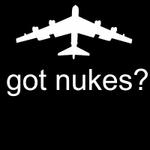 Fedaykin schrieb:Lern mal die Fakten. JFK hat den Vietnamkrieg quasi erst Angefangen
Fedaykin schrieb:Lern mal die Fakten. JFK hat den Vietnamkrieg quasi erst Angefangen
.
hab ich das bestritten? Das ändert nichts an dem Rückzugsbefehl, der durch Freigabe der Akten seit Mitte der 1990er bestätigt wurde.
Kennedy hat den militärischen Aspekt ausgebaut, indem er die Zahl der Militärberater von 500 (1961) auf 16000 erhöhte. Doch diese sollten hauptsächlich die südvietnamesische Soldaten ausbilden. Udn 16000 Militärberater warennoch peanuts zu den bis zu 500000 Soldaten unter Johnson.
Doch sträubte sich Kennedy manchmal als einziger in der Regierung gegen die Empfehlung, den Norden zu bombardieren oder Bodentruppen zu entsenden. Anfang 61 war nicht Vietnam, sondern Laos das Problem. Dort kämpften Kommunisten und Ncihtkommunisten gegeneinander, sodass die Sowjetunion die Kommunisten utneratützen und die USA deren Gegner. Schon damals wurde von Kennedy von seinen Militärs direkte Intervention gefordert, d.h. eisnatz von Bodentruppen mit taktischen Nuklearwaffen. Auch Nixon hat damals eine solche harte Gangart gefordert- was unweigerlich zur direkten Konfrontation mit den Sowjets geführt hätte. Kenendy hatte aufgrund des schweinebuchtfiaskos aufgehört, sich blind auf das urteil seiner Berater zu verlassen, und tat alles, um eien militärische Intervention zu verhindern- was dann zur Bildugn der Koalitionsregierung in Laos führte. deis führte auch zur verstärkten Militärpräsenz der USA in Vietnam. Ende 1961 forderten die Militärs udn auch MCNamara den Einsatz von Bodentruppen und taktischer Nuklearwaffen- und hier hat er wieder den Kompromiss zwischen Rückzug und Eskaltion gewählt, indem er die anzahl der Militärberater drastisch erhöhte. Kennedy sträubte sich bis zu seinem Tod, bodentruppen einzusetzen, weil er Bodenkriege in Asien nciht zu gewinnen wären- eine Meinung er unter dem Eindruckk des Scheiterns der Franzosen in Indochina bildete. 1963, mit der sich verschlechternden Situation in Vietnam, reifte kennedys entscheidung heran sich zurückzuziehen.
DAS sind die Fakten.
Beitrag von bredulino (Seite 32) Fedaykin schrieb:naja das ist gemäß Spieltheorie ne win win situation. Aber läuft nicht unter Entspannung.
Fedaykin schrieb:naja das ist gemäß Spieltheorie ne win win situation. Aber läuft nicht unter Entspannung.
Bedenken wir Beliner Mauer, Atomare Aufrüstung der UDSSR mit ICBMS, uvm
Das war 1961 u. 1962. 1963 gab es durchaus Anzeichen für die Möglichkeit eienr Zusammenarbeit mti den Sowjets. Ob du das nur win win situation oder entspannung nennen willst bleibt deienr wahl überlassen:
NSAM 271 vom 12.11.63
http://www.fas.org/irp/offdocs/nsam-jfk/nsam271.htm (Archiv-Version vom 12.10.2011)In retrospect, the impression is that Apollo moved forward without political problems; this is not correct. In 1961 and 1962, there was widespread political and public support for Kennedy’s lunar initiative, in part propelled by the enthusiasm of the initial flights of Project Mercury, including Alan Shepard’s suborbital mission on May 5, 1961, and John Glenn’s three-orbit flight on February 20, 1962. But by 1963, there was rising criticism of Apollo from several fronts. Eisenhower called the race to the Moon “nuts.” Many Republicans suggested that Kennedy should be spending more money on military space efforts nearer the Earth rather than on a lunar adventure. Leading scientists and liberals joined forces to suggest that Project Apollo was a distortion of national priorities and that there were many more worthy uses for the funds being spent on going to the Moon. Congress cut the NASA budget by 10% in 1963, slowing down its exponential increase.
Kennedy was quite sensitive to these criticisms, and in April, August, and October 1963 mandated major reviews of the Apollo commitment. The last of these reviews examined the options of slowing down Apollo, giving up on the Moon goal but continuing to develop the heavy-lift Saturn V Moon rocket, or canceling Apollo altogether. It concluded that none of these options were preferable to staying the course.
This review was not completed until November 29, 1963; by then, Kennedy had been dead a week. It is probable that Kennedy would have agreed with its conclusion; he was speaking of the space program in very positive terms in the days before his assassination. But Kennedy was also in the fall of 1963 pursuing another option: turning Apollo into a cooperative project with the Soviet Union. This is another aspect of the lunar landing program that has disappeared from memory.
Indeed, the 1961 decision to race the Soviet Union to the Moon was a reversal of Kennedy’s preference as he entered the White House. In his inaugural address he suggested “let us explore the stars together,” and in the first months of the Kennedy administration a White House task force worked on identifying areas of U.S.-Soviet space cooperation. Gagarin’s flight demonstrated to Kennedy that the United States had to focus on developing its own leading space capabilities, but the hope for cooperation never completely vanished from Kennedy’s thinking. As he met Nikita Khrushchev face to face in Vienna on June 3–4, 1961, Kennedy suggested that the United States and the Soviet Union join forces in sending people to the Moon. Khrushchev in 1961 was not open to such a prospect.
By 1963, the context for U.S.-Soviet space competition had changed. The United States had demonstrated to the world its technological and military power; the Soviet Union in 1961 backed off from a confrontation over access to Berlin and then in October 1962 yielded to U.S. pressure to remove its missiles from Cuba. Sobered by how close the two superpowers had come to nuclear war, Kennedy in 1963 proposed a new “strategy of peace” to reduce U.S.-Soviet tensions; an early success of this strategy was the signing of the Limited Test Ban Treaty in August 1963.
Kennedy, returning to his original point of view, thought that space cooperation might be a good next step in his strategy. He also was bothered by the increasing costs of Apollo and the chorus of criticisms of the lunar landing program. In a September 20, 1963, address to the General Assembly of the United Nations (UN), he made an unexpected, bold proposal. “Why,” he asked, “should man’s first flight to the Moon be a matter of national competition?” and suggested that the United States and the Soviet Union explore the possibility of “a joint expedition to the Moon.” Kennedy was quite serious in this proposal. When NASA seemed to be dragging its feet in coming up with approaches to U.S.-Soviet cooperation, Kennedy on November 12, 1963, directed NASA Administrator James Webb to take charge of government-wide planning for “cooperation in lunar landing programs.” With Kennedy’s death 10 days later, Apollo became a memorial to the fallen young president, and any possibility of changing it into a cooperative U.S.-Soviet effort disappeared. The country remained committed to the goal set for it by Kennedy.
http://www.issues.org/27.3/p_logsdon.htmltanas schrieb:..weil bestimmte positionen im cia von mafiosies korrumpiert waren (und heute auch immernoch sind).





